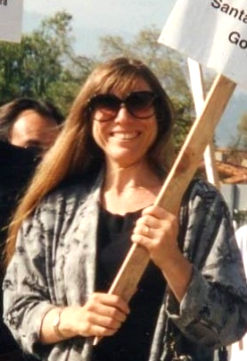There is no substitute for women and men mobilizing to demand their rights by Mya Shone


Originally published 9/7/2019
Emma Goldman, the renowned anarchist and feminist, insisted always that birth control had to be viewed in the context of capitalism. Women would suffer a double yoke of oppression from ruling class social, economic and political forces until they win control over their reproductive choices. By 1915, Margaret Sanger, whom Goldman had mentored, joined her in building a mass movement for birth control.
On the eve of Goldman’s April 5, 1915 trial for violating the 1873 Comstock Law, which prohibited the distribution of birth control literature, she gave a fiery speech on “The Social Aspects of Birth Control.” Goldman concluded by declaring, “I may be arrested, I may be tried and thrown into jail, but I never will be silent. …”
Seventy-seven years later, on April 5, 1992, 700,000 people streamed into Washington, D.C. to march and rally in support of abortion rights. It was one of the largest protests in the nation’s capital up to that time. They mobilized to send a forceful message to the U.S. Supreme Court, which was set to consider the constitutionality of a Pennsylvania state law placing substantial restrictions on access to abortion.
Many feared that Roe v. Wade itself was under threat and their concerns were well founded. While the Court did not throw out Roe, it undermined it by replacing the “fundamental” Roe standard with a far less protective “undue burden” criterion of review for evaluating state restrictions on abortion.
The struggle continues now more than ever with increasing urgency. There is no substitute for women and men mobilizing to demand their rights. These independent mass actions, along with our efforts to build a labor- and community-based independent party, show our determination that reproductive rights are inherent to our well-being and emancipation.

